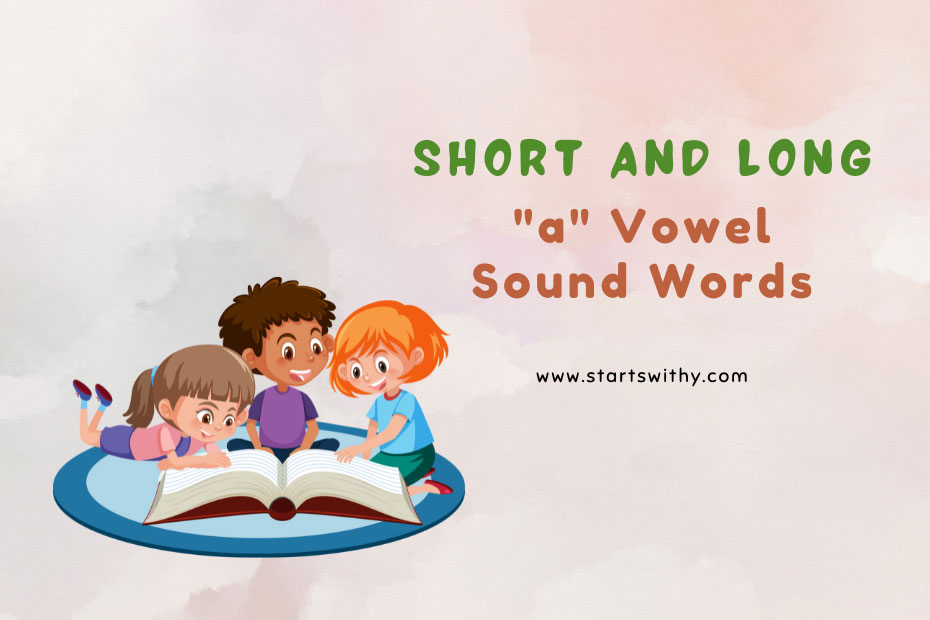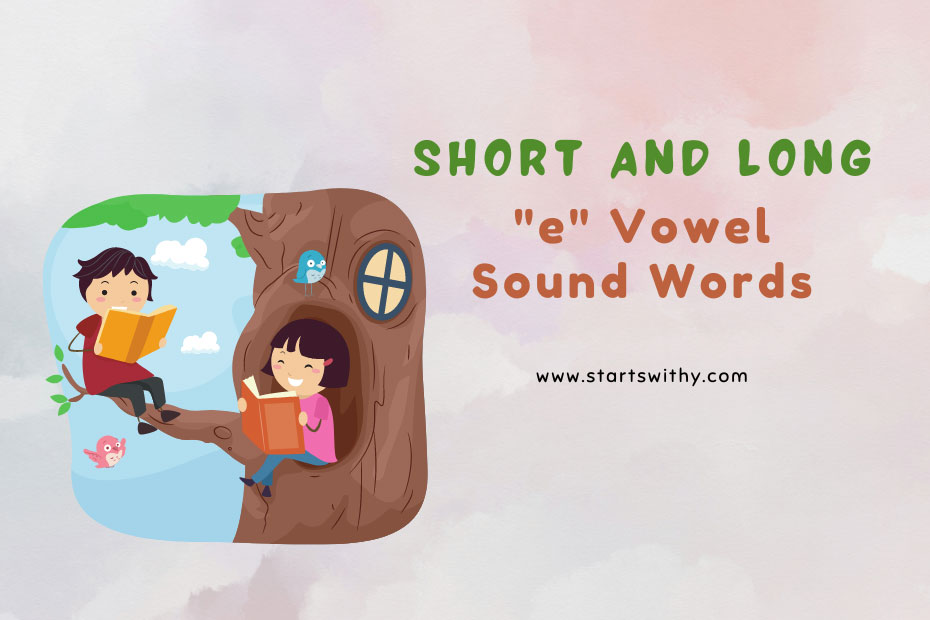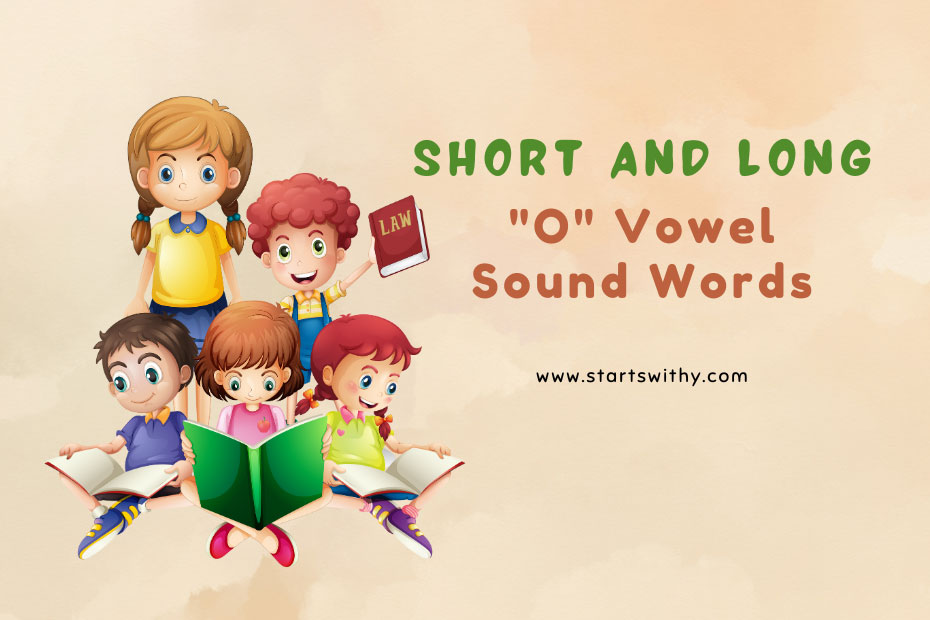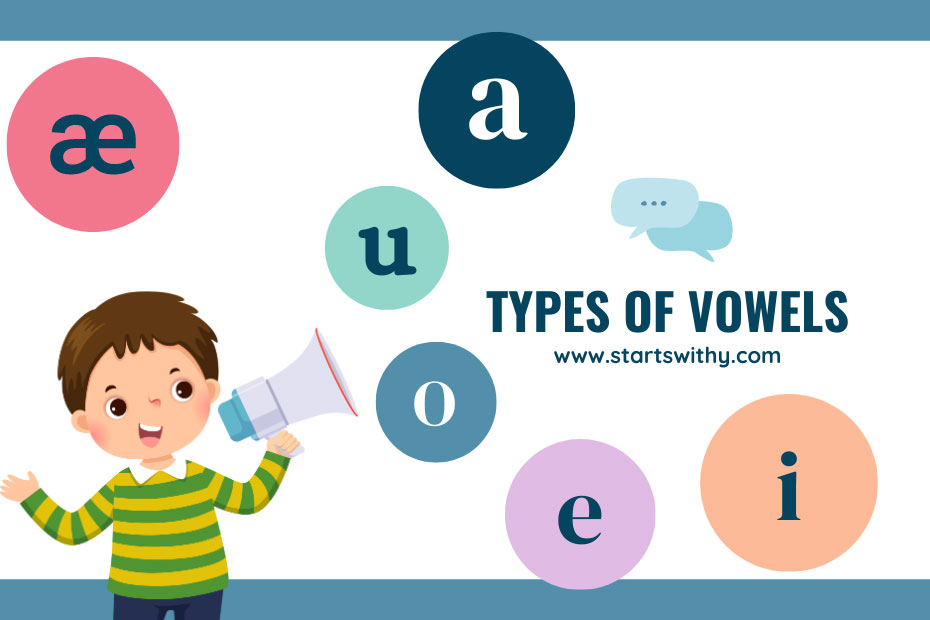Are you looking to expand your vocabulary and improve your English pronunciation? Well, you’ve come to the right place! In this article, I’ll be sharing with you a comprehensive list of short and long “a” vowel sound words. Whether you’re a student, a language enthusiast, or simply someone who wants to enhance their communication skills, this list will be a valuable resource for you.
Short and long vowel sounds play a crucial role in the English language. Understanding the difference between them is essential for proper pronunciation. Short vowel sounds are the ones commonly associated with the letters “a,” “e,” “i,” “o,” and “u.” On the other hand, long vowel sounds sound like the name of the letter itself. In this article, we’ll focus specifically on short and long “a” vowel sound words.
Short A Vowel Sound
As we continue our exploration of short and long vowel sounds, let’s dive deeper into the short A vowel sound. In this section, we’ll provide a comprehensive list of words with the short A sound, along with examples, rules, tips, and suggestions to enhance your understanding and pronunciation.
Words List for Short A Sound
To get started, here’s a curated list of words featuring the short A sound:
- at
- an
- as
- am
- bad
- cab
- had
- jam
- rag
- tap
And many more! This list will help you become familiar with different words that have the short A sound.
Examples of Short A Sound Words
To further illustrate the usage of the short A vowel sound, here are a few examples:
- Cat – A furry feline friend.
- Map – A handy tool for navigation.
- Ran – The action of moving quickly on foot.
These examples will give you a better understanding of how the short A sound is used in various contexts.
Rules
Understanding the rules associated with the short A sound is crucial for correct pronunciation and spelling. Here are a few key rules to keep in mind:
- The short A sound is often found in words containing the letter “a” followed by a consonant, such as cat or bag.
- Words with a short A sound can have different spelling patterns, including CVC (consonant-vowel-consonant) words like rat or dam and words with consonant blends or digraphs like clap or grab.
- Be aware of the FLOSS rule, which states that when a word ends with the letters F, L, S, or Z after a short vowel, it is usually spelled with a double letter (e.g., staff or buzz).
Keeping these rules in mind will help you accurately pronounce and spell words with the short A sound.
Tips and Suggestions
Now that you have familiarized yourself with the short A sound and its associated words, here are a few tips and suggestions to further enhance your pronunciation skills:
- Practice pronouncing the short A sound by repeating words from the list and examples provided.
- Record yourself saying words with the short A sound and listen back to identify areas for improvement.
- Utilize online pronunciation resources or apps to refine your pronunciation skills.
- Engage in conversations or language exercises that involve using words with the short A sound to build fluency and confidence.
By following these tips and suggestions, you’ll become more comfortable and proficient in pronouncing and using words with the short A sound.
Long A Vowel Sound
The long A vowel sound is an important sound in English pronunciation. It is pronounced like the letter “A” itself, as in the words “cake” and “rain”. In this section, I will provide a list of words with the long A sound, along with examples, rules, tips, and suggestions to enhance your understanding and pronunciation.
Words List for Long A Sound
Below is a list of words that have the long A vowel sound:
- Baby
- Cake
- Rain
- Day
- They
- Weigh
These words are just a few examples of words with the long A sound. By learning and practicing words from this list, you can improve your pronunciation and become more confident when using words with the long A sound.
Examples of Long A Sound Words
Let’s look at a few examples to better understand the long A vowel sound:
- “Baby” – The long A sound can be heard in the first syllable of this word. Remember to pronounce it like the letter “A”.
- “Cake” – Again, the long A sound is present in the first syllable of this word. Pay attention to pronouncing it accurately.
- “Rain” – The long A sound can be heard in the single syllable of this word.
Remember, these examples are just a starting point. There are many other words that contain the long A sound, and by practicing them, you can improve your pronunciation skills.
Rules
To pronounce the long A vowel sound correctly, it’s important to follow these rules:
- Vowels at the end of a syllable make the long sound: In words like “baby” and “cake”, the vowel is at the end of a syllable, causing it to make the long A sound.
- Silent “e” makes the previous vowel long: Words like “lake” and “game” have a silent “e” at the end, which makes the previous vowel, in this case, the letter “a”, long.
- Vowel teams can make the long sound: When two vowels come together, they work as a team to make one sound. For example, the word “meat” has a vowel team “ea” that makes the long A sound.
- “I” or “O” can be long when they come before two consonants: In words like “mind” and “cold”, the letters “i” and “o” make a long vowel sound because they come before two consonants.
By remembering and applying these rules, you can improve your pronunciation of words with the long A vowel sound.
Tips and Suggestions
Here are some tips and suggestions to help you practice and improve your pronunciation of words with the long A sound:
- Listen to native speakers or recordings to familiarize yourself with the correct pronunciation of words with the long A sound.
- Repeat words with the long A sound multiple times to reinforce your muscle memory and train your mouth to produce the correct sound.
- Use online resources, such as pronunciation guides or audio exercises, to practice words with the long A sound.
- Record yourself pronouncing words with the long A sound and compare it to native speakers. This can help you identify areas for improvement.
Remember, practice makes perfect, and by consistently working on your pronunciation skills, you will become more confident and proficient in using words with the long A sound.
List of Short and Long “a” Vowel Sound Words
| Acorn | Act | Active | Actor |
| Agent | Album | Alien | Amazing |
| Apron | Apt | Ask | Atlas |
| Baby | Bad | Bag | Bandit |
| Basic | Basin | Bat | Cab |
| Cake | Camel | Cap | Cat |
| Dab | Dad | Dagger | Dan |
| Data | Factory | Fad | Fan |
| Fat | Fatal | Favor | Gab |
| Gal | Gap | Gas | Had |
| Ham | Hammer | Has | Hat |
| Jab | Jam | January | Lab |
| Lad | Ladder | Lady | Lag |
| Lap | Late | Mad | Made |
| Man | Map | Mat | Name |
| Nap | Never | Pad | Pal |
| Pam | Pan | Panic | Paper |
| Patiently | Rabbit | Radiant | Rag |
| Ram | Ran | Rat | Sad |
| Saddle | Sag | Sam | Sap |
| Sat | Set | Tab | Tad |
| Tag | Tan | Tap | Tape |
| Vacation | Van | Vat | Wet |
| Yam | Zap |
Beginning Blends Short a Words
In this section, I’ll provide a list of words with beginning blends and the short a vowel sound. Mastering these words will help you improve your pronunciation and expand your vocabulary. Let’s dive in!
- Bran: This word refers to the outer layer of a grain, such as wheat or rice.
- Brag: To boast or show off about something.
- Crab: A crustacean with a broad shell and pincers.
- Trap: A device used to catch animals.
- Blab: To reveal secret or confidential information.
- Clap: To strike your hands together to make a sound.
- Flag: A piece of fabric used as a symbol or for signaling.
- Slam: To shut forcefully or with great force.
- Slat: A thin, narrow strip of wood or metal.
- Span: The distance between two points.
- Drag: To pull someone or something along the ground.
- Flap: To wave or oscillate rapidly.
- Snag: To catch or tear on a sharp or projecting object.
- Snap: To make a sharp, cracking sound.
- Swam: The past tense of the verb “swim.”
- Stab: To pierce or wound with a pointed weapon.
- Flat: Having a level surface with no curves or bumps.
- Crash: To collide violently with something.
Now that you have a comprehensive list of beginning blends short a words, practice pronouncing them correctly to improve your English skills. Remember to focus on the short a sound while saying these words.
Ending Blends Short a Words
When it comes to improving English pronunciation, focusing on specific vowel sounds is key. In our previous sections, we discussed words with beginning blends and the short A vowel sound. Now, let’s dive into another essential aspect: ending blends with the short A vowel sound.
Ending blends are when two or more consonants come together at the end of a word to create a unique sound. When combined with the short A vowel sound, they form words that are frequently used in the English language. Practicing these words can help you on your journey to mastering pronunciation and expanding your vocabulary.
Here is a list of ending blends short A words:
- band
- sand
- last
- fast
- past
- camp
- lamp
- damp
- gasp
- pant
- grand
- stamp
- grasp
- bland
These words not only have an ending blend but some also have a beginning blend. It’s essential to familiarize yourself with both the beginning and ending sounds to pronounce these words correctly.
Working with word families is an effective way to reinforce learning. Word families are groups of words that have the same ending sound and vowel. In this case, we’re focusing on short A words with ending blends.
Let me provide you with an example of how you can work with the word family “amp”:
- Write “amp” on a post-it note and place it on a whiteboard.
- Use a dry-erase marker to write a consonant before “amp”. For instance, write “c” to form “camp.”
- Help your child blend the sounds together to pronounce the word correctly.
- Erase the consonant and replace it with a different one. For example, change “c” to “l” to form “lamp.”
- Repeat the process with other consonants to explore more words within the “amp” word family.
Using this approach, you can practice and reinforce the pronunciation of ending blends short A words. I highly recommend downloading a free short A sound word list, which contains 80 short A sound words.
Remember, improving pronunciation takes practice and patience. By focusing on ending blends short A words, you’ll enhance your English skills and become more confident in your communication. Stay tuned for more tips and strategies to continue improving your vocabulary and pronunciation.
Teaching Long & Short A Vowels
As an expert in language learning, I understand the importance of mastering vowel sounds, especially the distinction between short and long vowels. In this section, I’ll provide you with a comprehensive list of words that demonstrate the different sounds of the short and long A vowels.
Before we dive into the word list, it’s essential to ensure that students have a solid understanding of the five short vowel sounds and consonant blends. These foundational skills will serve as the building blocks for learning long vowels, including the long A sound.
To teach long A vowel patterns effectively, it’s essential to introduce them one at a time in a sequential order. This way, students can focus on each pattern individually and avoid confusion. Engaging students in hands-on and multisensory activities will enhance their learning experience, making it more enjoyable and effective.
Let’s explore the word list that showcases words with the short A and long A vowel sounds:
- Short A Vowel Words:
- Long A Vowel Words:
By practicing these words, students can familiarize themselves with both the short and long A vowel sounds. Encourage them to listen carefully to the pronunciation of each word, paying attention to the length and quality of the vowel sound.
Remember, learning is most effective when it’s reinforced through word families. One effective way to reinforce the long A sound is by exploring the “amp” word family. This family includes words like lamp, camp, and stamp. By working with word families, students can transfer their knowledge and apply it to various words with similar patterns.
To support your teaching, I recommend downloading a free short A sound word list, which will provide additional practice opportunities for your students. Remember, the key to improving pronunciation lies in practice and patience. So keep encouraging your students to engage with these words regularly, and before you know it, they’ll be mastering the long and short A vowel sounds effortlessly.
Stay tuned for more strategies and word lists to help you enhance your students’ English pronunciation skills.
Short A vs Long A: The Key Differences
When it comes to vowel sounds, understanding the distinction between short A and long A is crucial. Short A and long A are two different pronunciations of the letter A, resulting in distinct sounds in words. The main difference between the two lies in their length and pronunciation.
Short A is a relatively quick and crisp sound, commonly found in words like “cat,” “hat,” and “bat.” It is a short and closed sound, where the mouth is only slightly open, and the sound is produced at the front of the mouth.
On the other hand, long A is a longer and more open sound, often found in words like “cake,” “lake,” and “stake.” The mouth is more open and the sound is produced further back in the mouth. Long A is typically produced by holding the sound for a longer duration or adding an “e” or “ai” at the end of the word.
One distinction between short A and long A is how they are spelled. Short A is often represented by a single letter A, while long A can be represented by various combinations, such as “ai,” “eigh,” or a silent “e” at the end of a word. For example, in the word “pain,” the “ai” combination creates the long A sound.
Understanding the difference between short A and long A is important for reading and pronouncing words correctly. It helps in improving phonemic awareness, which is essential for children learning to read. By being aware of the distinctions and practicing the correct pronunciation of short and long A sounds, individuals can enhance their communication skills and develop a more accurate reading ability.
Conclusion
Mastering vowel sounds is essential for improving English pronunciation and expanding vocabulary. In this article, we focused on the long A vowel sound and words with beginning blends, as well as the short A vowel sound. By providing a comprehensive list of words that demonstrate these different sounds, we aimed to equip you with the tools needed to enhance your pronunciation skills.
Teaching long and short A vowels can be made more effective by utilizing word families, such as the “amp” word family we discussed. This approach allows learners to recognize patterns and reinforce their understanding of vowel sounds.
Remember, practice and patience are key in improving pronunciation. By regularly practicing the words from the provided lists and incorporating them into your daily conversations, you will gradually enhance your English pronunciation skills.
To further assist you in your journey, we recommend downloading our free short A sound word list. This resource will serve as a valuable reference as you continue to refine your pronunciation.
Keep up the dedication and persistence, and soon you’ll notice a significant improvement in your pronunciation skills. Happy learning!



